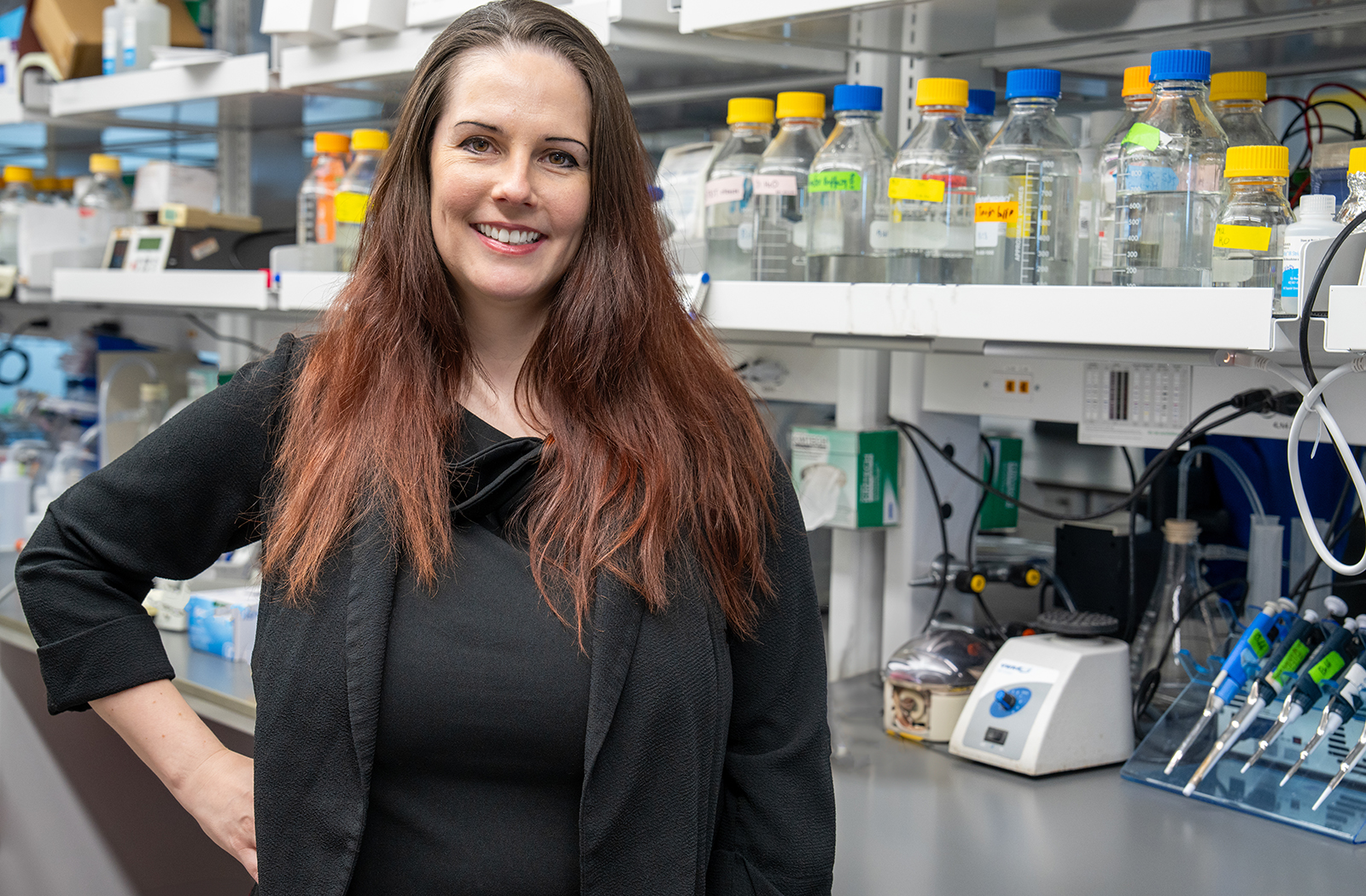
Women in Medicine and Science - Isabelle Schrauwen, PhD

A human geneticist, Isabelle Schrauwen, PhD, an associate professor in the Department of Translational Neurosciences at the University of Arizona College of Medicine – Phoenix, specializes in the study of pathogenic mechanisms associated with disorders of the nervous system, development and sensory functions.
“My research focuses particularly on pediatric disorders, including sensorineural and neurodevelopmental conditions, aiming to identify pathogenic variants and novel pathways using innovative omics technologies,” she explained. It is a field she first became passionate about during her college studies, and it led her to pursue a PhD in biomedical sciences.
The biomedical sciences have evolved since Dr. Schrauwen first began her work, transitioning from mostly wet lab work to an increased focus on bioinformatics and data-driven approaches. Through the latter, she hopes to address ongoing issues within the biomedical sciences. “I hope to further tailor this work to translational medicine and foster local collaborations that bridge the gap between research and clinical applications, ultimately improving patient care,” she said.
But, for her, pressing questions remain around the implementation of precision medicine and understanding the genetic underpinnings of complex pediatric disorders — many of which currently lead to lengthy diagnostic journeys with uncertain outcomes.
To address these issues, she utilizes multi-omics analysis techniques that include genomics, transcriptomics and epigenomics. “This comprehensive approach provides a wealth of useful information, enabling us to identify genetic factors and understand the mechanisms driving these disorders,” she said.
Another focal point of Dr. Schrauwen’s career is providing training opportunities and mentorship to the next generation of scientists.
“I find great joy in having students and postdocs in my lab, helping them grow and develop their own scientific passions,” she said. Encouraging them to understand the importance of scientific partnership is central to ultimately helping patients with these conditions.
“Rare disorders often require a collective effort across borders to gather enough data, share knowledge and develop effective treatments. By fostering a collaborative and international approach, we can leverage the latest innovations in omics technologies to uncover new disorders, understand their underlying mechanisms, and improve diagnostics and therapies,” she explained.
This collaborative spirit extends to fellow women in medicine and science. “I thoroughly enjoy working with and mentoring female scientists, as it fosters a supportive and encouraging environment essential for progress,” Dr. Schrauwen said. “Collaborating with women in medicine and science, particularly on a global scale, allows us to integrate diverse perspectives and ideas, which can lead to innovative solutions and breakthroughs.”
Dr. Schrauwen completed her PhD at the Center of Medical Genetics, University of Antwerp, Belgium. She then completed her postdoctoral training at the Translational Genomics Research Institute in Phoenix, AZ. Prior to joining the college, she served as an assistant professor at the Center of Statistical Genetics in the Neurology Department of Columbia University.
Read more Women to Watch in Medicine and Science profiles
About the College
Founded in 2007, the University of Arizona College of Medicine – Phoenix inspires and trains exemplary physicians, scientists and leaders to advance its core missions in education, research, clinical care and service to communities across Arizona. The college’s strength lies in our collaborations and partnerships with clinical affiliates, community organizations and industry sponsors. With our primary affiliate, Banner Health, we are recognized as the premier academic medical center in Phoenix. As an anchor institution of the Phoenix Bioscience Core, the college is home to signature research programs in neurosciences, cardiopulmonary diseases, immunology, informatics and metabolism. These focus areas uniquely position us to drive biomedical research and bolster economic development in the region.
As an urban institution with strong roots in rural and tribal health, the college has graduated more than 1,000 physicians and matriculates 130 students each year. Greater than 60% of matriculating students are from Arizona and many continue training at our GME sponsored residency programs, ultimately pursuing local academic and community-based opportunities. While our traditional four-year program continues to thrive, we will launch our recently approved accelerated three-year medical student curriculum with exclusive focus on primary care. This program is designed to further enhance workforce retention needs across Arizona.
The college has embarked on our strategic plan for 2025 to 2030. Learn more.